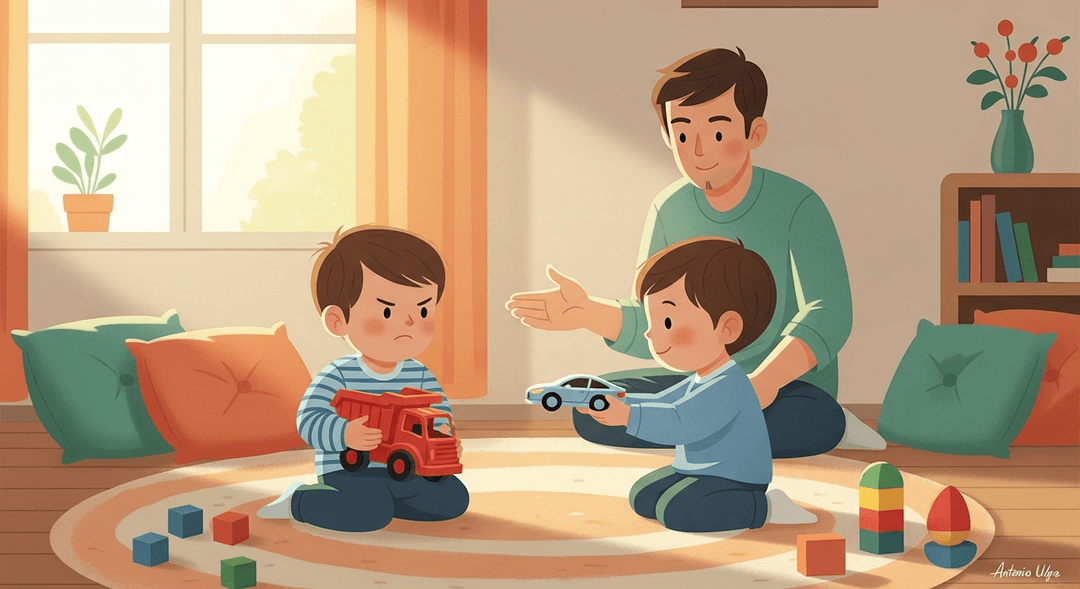Encourage Sharing and Cooperation
Ever watched your kid go full Gollum over a plastic truck? Welcome to the Sharing Olympics, where every toy is precious and every cracker is sacred. If you’ve ever wondered whether your living room is a tiny Lord of the Flies reboot, this one’s for you—let’s make ‘working together’ sound less like a group project from high school and more like a superpower your tiny human actually wants.
Teaching kids to share and cooperate isn’t just about keeping the peace (although, yes, please). It actually rewires their brains for empathy, patience, and problem-solving. When kids practice sharing, their brains get a little workout in understanding others’ feelings—hello, emotional intelligence! Plus, it helps them build trust and friendships, which means maybe, just maybe, you’ll get to finish your coffee while it’s still hot.
How to do it
-
Narrate the magic as it happens. When you notice sharing, point it out: “Wow, look at you two working together!” (Bonus points if you add jazz hands for extra flair.)
-
Model sharing yourself. Offer to share your own things, even if it’s just your last bite of toast (or at least half a bite). Kids learn a lot by watching you.
-
Set up team tasks. Turn clean-up into a race or make building a fort a group project. Cooperative activities help sharing feel fun and natural.
-
Keep your expectations realistic. Remember, sharing can be tough—especially when you’re three and that truck feels like the best thing ever.
-
Always celebrate even the tiniest acts of cooperation. Stickers, high fives, or a dramatic round of applause go a long way in reinforcing positive behavior.
Key Tips:
- Use enthusiastic narration to highlight positive moments.
- Demonstrate sharing in your own actions.
- Make teamwork part of daily routines.
- Be patient; young children are still learning.
- Celebrate every effort, no matter how small.
